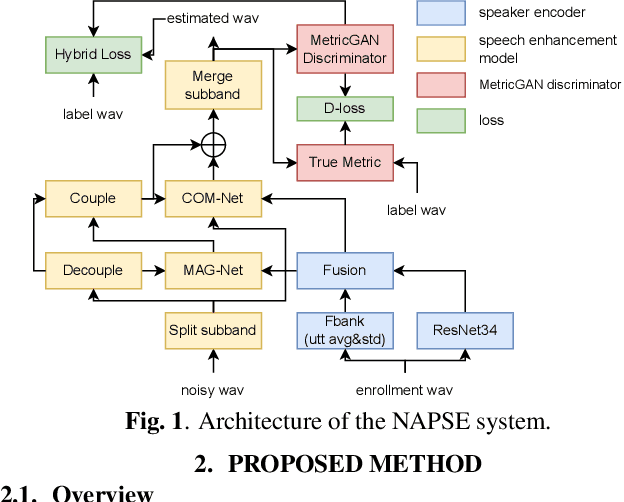Yindi Yang
The NPU-Elevoc Personalized Speech Enhancement System for ICASSP2023 DNS Challenge
Mar 15, 2023

Abstract:This paper describes our NPU-Elevoc personalized speech enhancement system (NAPSE) for the 5th Deep Noise Suppression Challenge at ICASSP 2023. Based on the superior two-stage model TEA-PSE 2.0, our system particularly explores better strategy for speaker embedding fusion, optimizes the model training pipeline, and leverages adversarial training and multi-scale loss. According to the results, our system is tied for the 1st place in the headset track (track 1) and ranked 2nd in the speakerphone track (track 2).
Deep Learning Based Antenna Selection for Channel Extrapolation in FDD Massive MIMO
Sep 03, 2020Abstract:In massive multiple-input multiple-output (MIMO) systems, the large number of antennas would bring a great challenge for the acquisition of the accurate channel state information, especially in the frequency division duplex mode. To overcome the bottleneck of the limited number of radio links in hybrid beamforming, we utilize the neural networks (NNs) to capture the inherent connection between the uplink and downlink channel data sets and extrapolate the downlink channels from a subset of the uplink channel state information. We study the antenna subset selection problem in order to achieve the best channel extrapolation and decrease the data size of NNs. The probabilistic sampling theory is utilized to approximate the discrete antenna selection as a continuous and differentiable function, which makes the back propagation of the deep learning feasible. Then, we design the proper off-line training strategy to optimize both the antenna selection pattern and the extrapolation NNs. Finally, numerical results are presented to verify the effectiveness of our proposed massive MIMO channel extrapolation algorithm.
 Add to Chrome
Add to Chrome Add to Firefox
Add to Firefox Add to Edge
Add to Edge